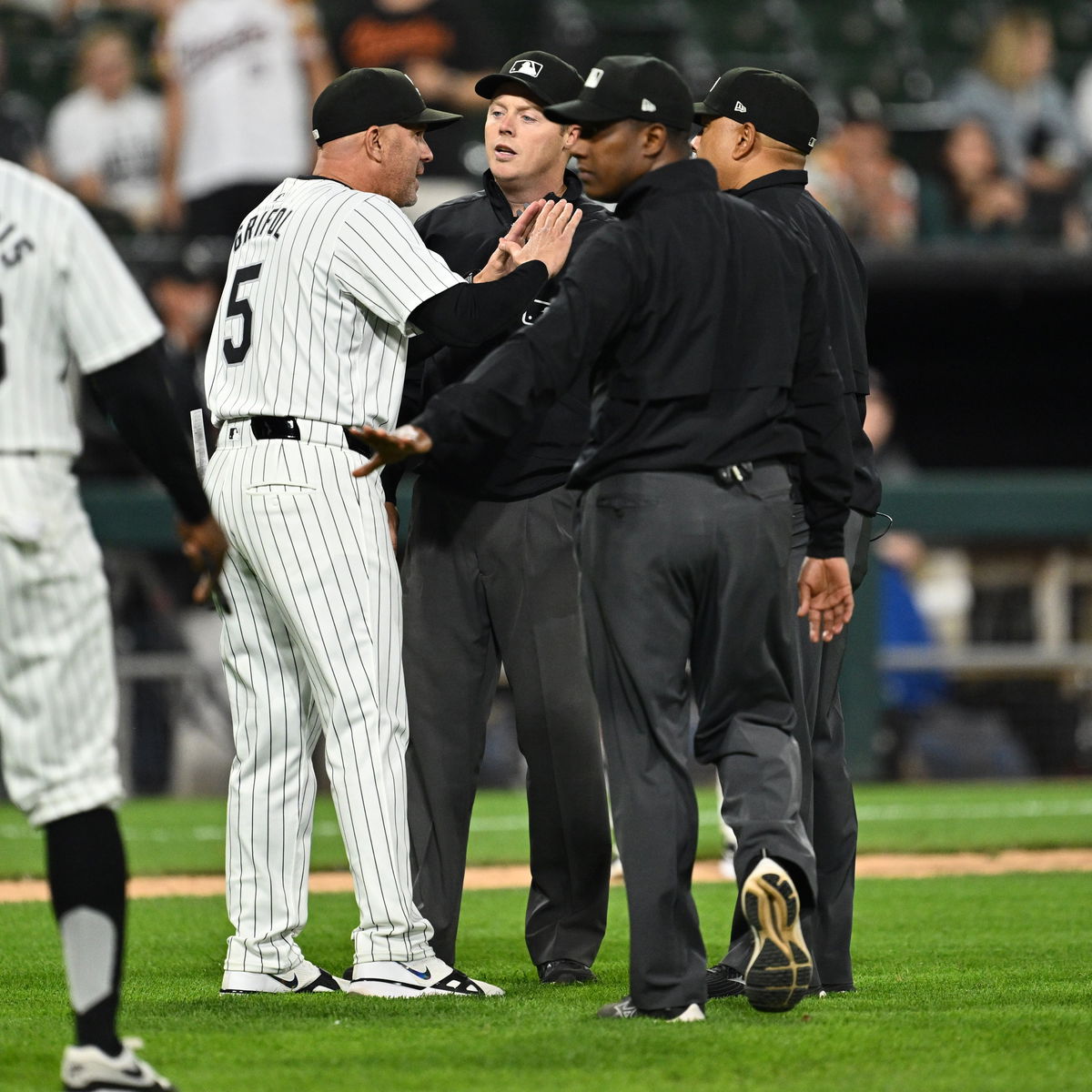

In a game that had all the makings of a dramatic comeback, the Chicago White Sox were left fuming. This was the outcome of a head-scratching call that ended their Thursday night matchup against the Baltimore Orioles in an 8-6 defeat. Who was the culprit? Well, it was a controversial interference call that many believe stole the game from Chicago.
Watch What’s Trending Now!
With the White Sox trailing by two runs in the bottom of the ninth and a chance to snatch victory, Andrew Benintendi sent a pop-up toward the infield. Now, with runners on first and second, the infield fly rule went into effect, seemingly putting the White Sox one out away from extending the inning. This is where the play took an unexpected turn.
A Controversial Call that Stole the White Sox’s Win, Makes MLB Curious
As shortstop Gunnar Henderson settled under the pop-up, Andrew Vaughn, the runner on second base, was casually walking back toward the bag. Vaughn, unaware of Henderson’s positioning, ended up in the shortstop’s path momentarily. Incredibly, the umpire ruled interference on Vaughn, turning the out into a game-ending double play. This raised MLB’s eyebrows.
MLB reached out to the White Sox and said the interference call to end last night's game should not have been made, per @JesseRogersESPN pic.twitter.com/LcAveZV6YH
— Talkin’ Baseball (@TalkinBaseball_) May 24, 2024
The controversial call left players, fans, and even Major League Baseball scratching their heads. The MLB rulebook states that runners who hinder a fielder attempting a catch can be called for interference. And that is regardless of intent. However, the subjectivity of “hindering” leaves room for interpretation. In this case, many argue that Vaughn’s minimal contact with Henderson did not significantly impact the play.
Adding fuel to the fire, reports emerged that Major League Baseball reached out to the White Sox after the game, essentially admitting the call was incorrect. But, they pointed out the inherent subjectivity of the rule, leaving the White Sox with a bitter taste of “what if”.
The Takeaway: A Call for Consistency?
White Sox manager Pedro Grifol didn’t mince words when expressing his displeasure. “I don’t think any baseball game should end like that,” he stated, echoing the sentiment of many. Vaughn himself expressed confusion, unsure of how he could have avoided the call without possessing psychic abilities.
This incident reignites the debate about umpire discretion and the potential for game-altering calls based on subjective interpretations. On one hand, the rule technically allows for such a call. On the other, many are left questioning the fairness of ending a game on such a minor incident. That is, especially when the fielder clearly made the catch.
The White Sox will have to move on, but the memory of this controversial call will likely linger. It serves as a reminder of the delicate balance between upholding the rules and ensuring games are decided by the players on the field, not an umpire’s interpretation.

